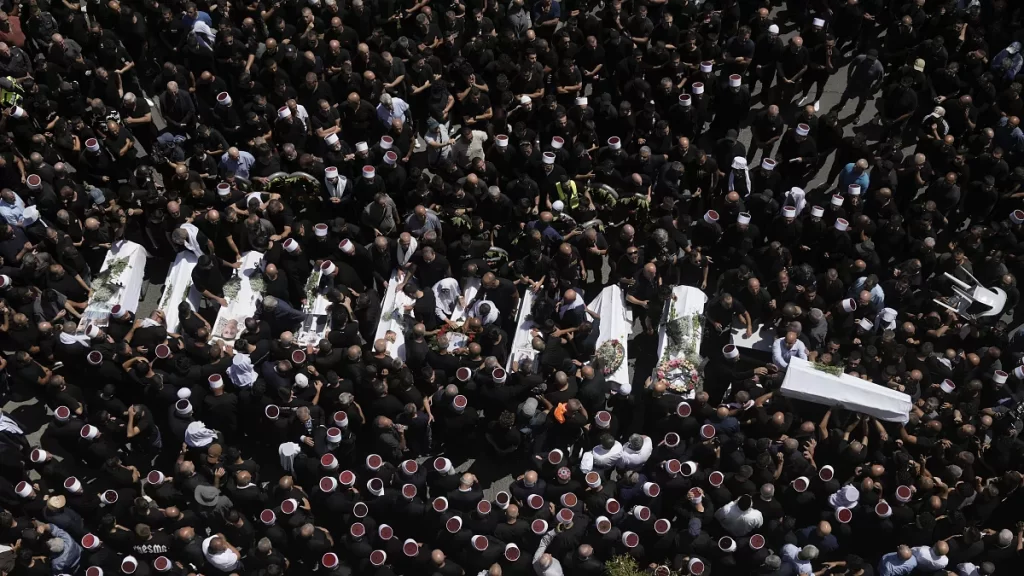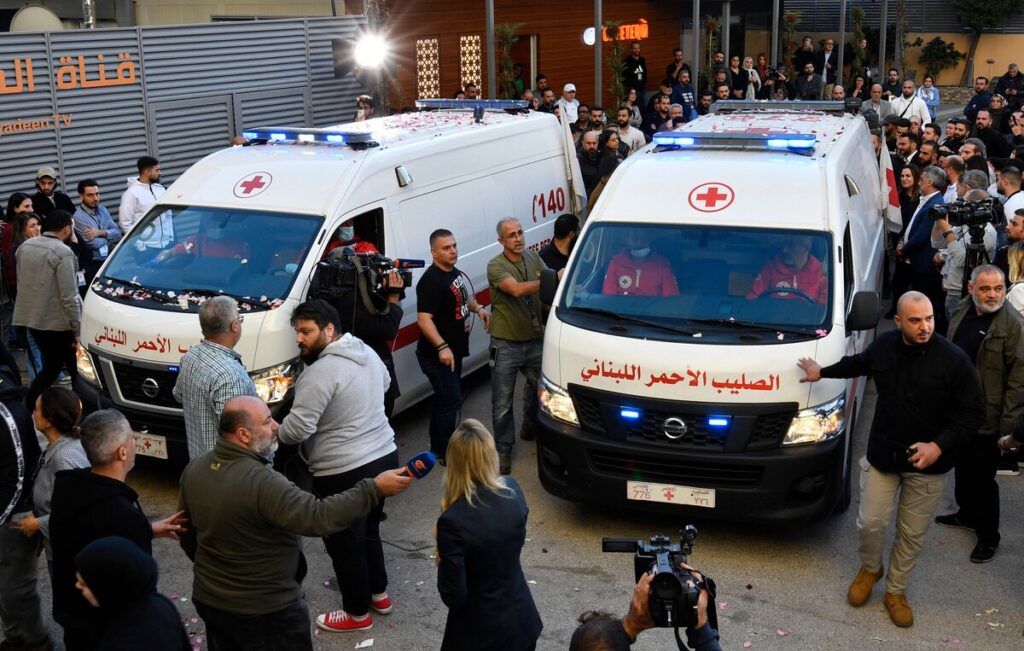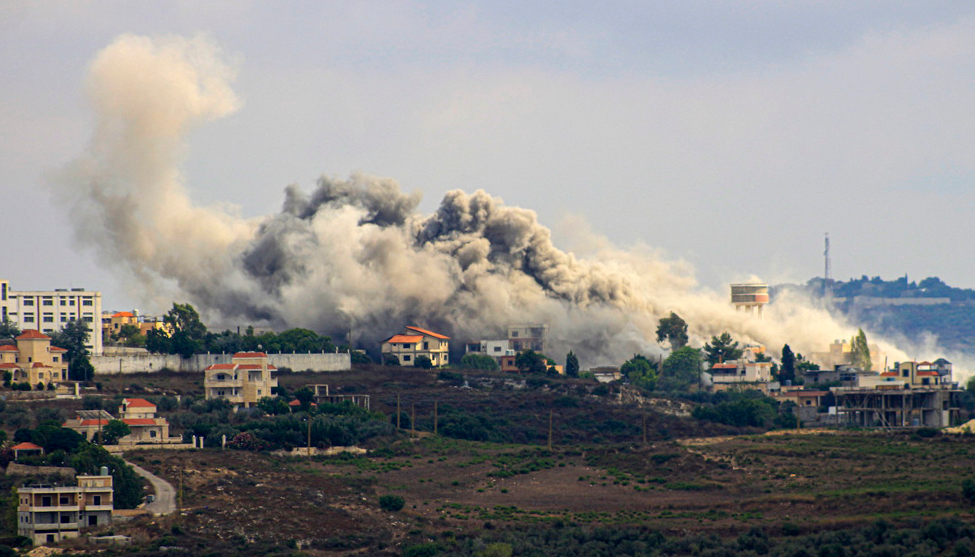Tensions between Israel and Lebanon have sharply escalated following a series of strikes and counter-strikes, prompting intense diplomatic efforts to prevent a wider regional conflict. The latest developments come amid the ongoing Israel-Hamas war, raising fears of a potential expansion of hostilities.

Early Monday, Israeli strikes killed two people and injured three others in southern Lebanon, according to Lebanon’s state-run news agency. The strikes reportedly hit a motorcycle near the Lebanon-Israel border, killing two riders and injuring a child. In a separate incident, two more individuals were injured in another strike in southern Lebanon.
These attacks follow a deadly rocket strike from Lebanon over the weekend that killed 12 children and teenagers in Majdal Shams, a town in the Israel-controlled Golan Heights. Israeli military officials have described this as the deadliest attack on civilians since October 7, marking a significant escalation in the conflict.
Israel has accused Hezbollah of firing the rocket that hit Majdal Shams, although the militant group has denied responsibility – a rare move that has added to the complexity of the situation.

As Israel contemplates its response to the weekend attack, diplomatic channels have been working overtime to prevent further escalation. Lebanese caretaker Prime Minister Najib Mikati has engaged in “intensive diplomatic contacts,” including a call with British Foreign Secretary David Lammy. Both leaders emphasized the need for restraint to prevent escalation, acknowledging that a widening of the conflict would not serve anyone’s interests.
In parallel efforts, Hezbollah’s head of foreign relations, Ammar Moussawi, met with Lebanese Foreign Minister Abdallah Bou Habib. Additionally, Amos Hochstein, a senior advisor to U.S. President Joe Biden, has reportedly been involved in delicate negotiations aimed at ensuring that potential Israeli retaliation and Hezbollah’s response do not spiral into an all-out war.

The international community is closely watching these developments, aware that any further escalation could have far-reaching consequences for the region. The situation remains highly volatile, with both sides on high alert and diplomatic efforts continuing to prevent a broader conflict.
As tensions remain high, the coming days will be crucial in determining whether diplomacy can prevail in containing the situation or if the region will see a further escalation of hostilities. The international community continues to call for restraint from all parties involved, emphasizing the devastating potential of a wider regional conflict.
APNEWS.COM



